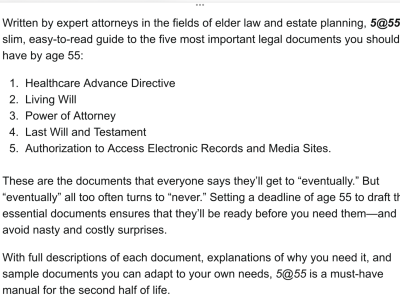3. Umbrella Insurance: Once your net worth passes $500,000 and you approach the million mark, it is time to consider Umbrella Insurance. Car and homeowners insurance can only cover so much. Generally, you will need to increase or max-out the coverage on your cars and real estate before an umbrella policy can be added.
despite a person's net worth once they've paid off their home it is wise to get umbrella insurance. additionally-lawsuits can literally take money you don’t have… yet. if your assets do not cover what the court rules you owe the claimant, the judgment might include garnishing your wages so an umbrella policy provides that level of protection as well. this is why it's important to know your existing coverage in all circumstances AND where you may need but lack coverage- people who volunteer with a community, charitable, or religious organization are at a higher risk of being sued than others. before you volunteer with an organization, make sure they have some form of insurance that can help pay for a related lawsuit against you. if the organization does not have insurance or does not fully cover you, your umbrella policy could save the day. i point this out b/c i personally know individuals who were stuck with high legal bills due to their organizations either not having or being grossly under insured. this can be a liability concern if you drive other people's kids on school field trips or for organized sports/dance/music...events.


